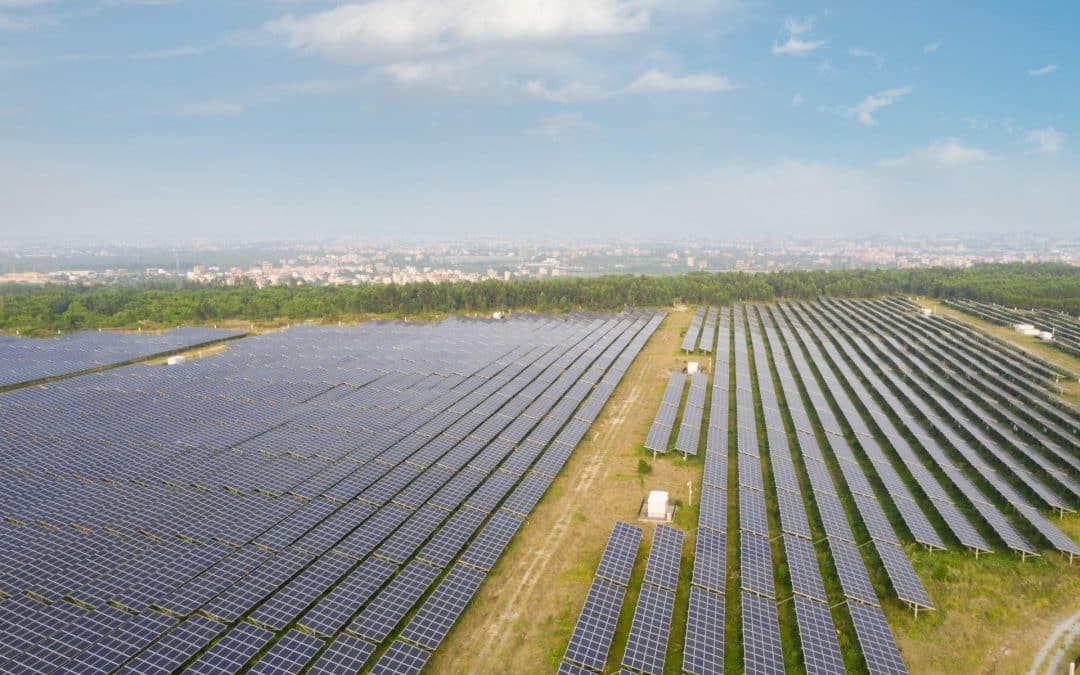Overheating can cause problems for solar panels. However, researchers have found a way to make solar panels “sweat,” allowing the panels to cool themselves and increase their power output.
Typical Solar Panels
More than 600 gigawatts of solar energy capacity exist worldwide today. That accounts for 3% of the world’s electricity demand. That capacity is expected to increase by at least five times over the next decade. Most solar panels utilize silicon to convert sunlight into electricity. However, average silicon panels only convert 20% of the sun’s energy into electricity. Most of the rest of that energy turns into heat, which can warm the panels by as much as 104 degrees Fahrenheit. Generally, with each degree above 77 degrees Fahrenheit comes a drop in efficiency. In this field, even a one percent gain is economically beneficial.
Self-Cooling Solar Panels
Cooling solar panels with water isn’t an entirely new concept. Researchers discovered this method decades ago. Nowadays, some companies even sell water-cooled systems. However, those systems require a large amount of available water and storage tanks, pipes, and pumps. That’s not sustainable in dry regions or developing countries with a lack of infrastructure.
This is where an atmospheric water collector comes into play. Researchers have recently created materials that can suck water vapors from the air and condense it into liquid water for drinking. One of the best materials researchers have come up with is a gel that absorbs water vapor at night when it’s cool and humid. The gel causes the moisture to condense into droplets that it stores and subsequently releases the water vapor when heat rises during the day. If covered by plastic, the released vapor is trapped and subsequently condensed back into liquid water. From there, it flows into a storage container.
Engineers at Hong Kong Polytechnic University realized the condensed water could be used as a coolant for solar panels. The engineers’ idea was to press the gel against the underside of a standard silicon solar panel. They hypothesized that during the day, the gel would pull heat from the solar panel to evaporate water it had pulled out of the air the previous night, releasing the vapor through the bottom of the gel. The evaporating water would subsequently cool down the solar panel.
The researchers tested this method in two different environments – a dry, desert environment and a humid environment – tailoring the amount of gel used to the environment’s humidity. In both cases, the outcome was that the temperature of the water-cooled solar panel dropped by as much as 50 degrees Fahrenheit. The electricity output of the water-cooled panels also increased by an average of 15%. One outdoor test even showed the electricity output of the panels increased by 19%. In this case, the wind probably assisted with the cooling of the panels.
The researchers also discovered that rain could dissolve the calcium chloride salt in the gel affecting the gel’s water-attracting performance. However, if the gel is placed underneath the solar panel, it’s shielded from the rain in most instances. The researchers are also working on a second-generation gel that wouldn’t be affected by the rain.
Another design option is a system that would be able to trap and recondense water after it evaporates from the gel. That water could be utilized to clean any dust buildup on the panels. This would resolve another power-draining problem that commonly affects solar panels. Additionally, that water could be stored for drinking, which could solve many issues in dry climates and in developing countries where clean drinking water is an issue.
Check out this article if you are interested in learning how some solar panels use water to self-cool:
http://solup.com/these-solar-panels-suck-water-from-the-air-to-cool-down/
Stay Up-to-Date with Solar Advances
It’s no secret that solar energy is continuously evolving. Every day, new advances are being made within the solar industry. It’s important to stay in-tune with what’s going on with this booming, ever-changing industry. Sol-Up is committed to keeping you up-to-date with everything going on in solar. Follow our blog to stay connected.

